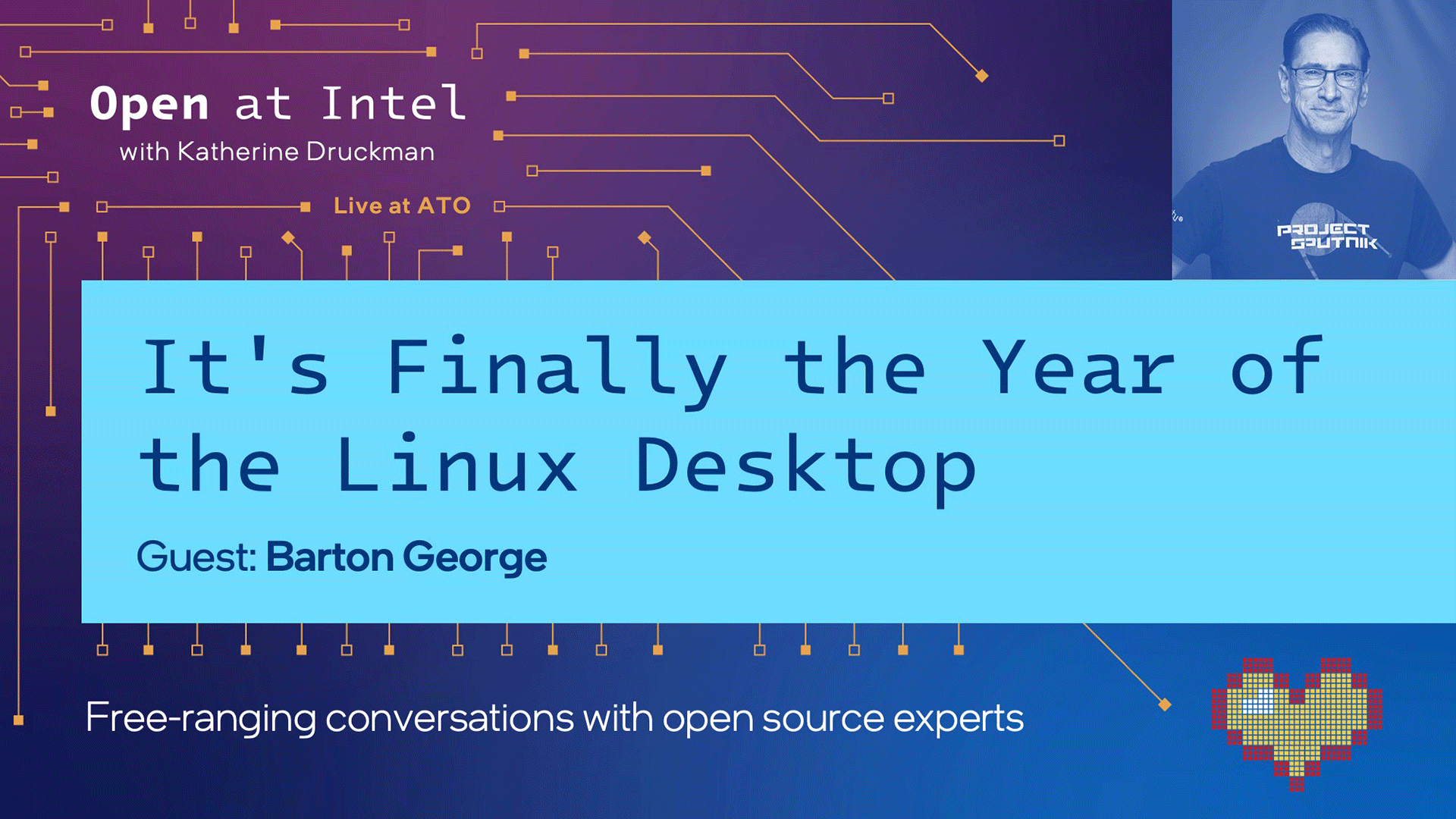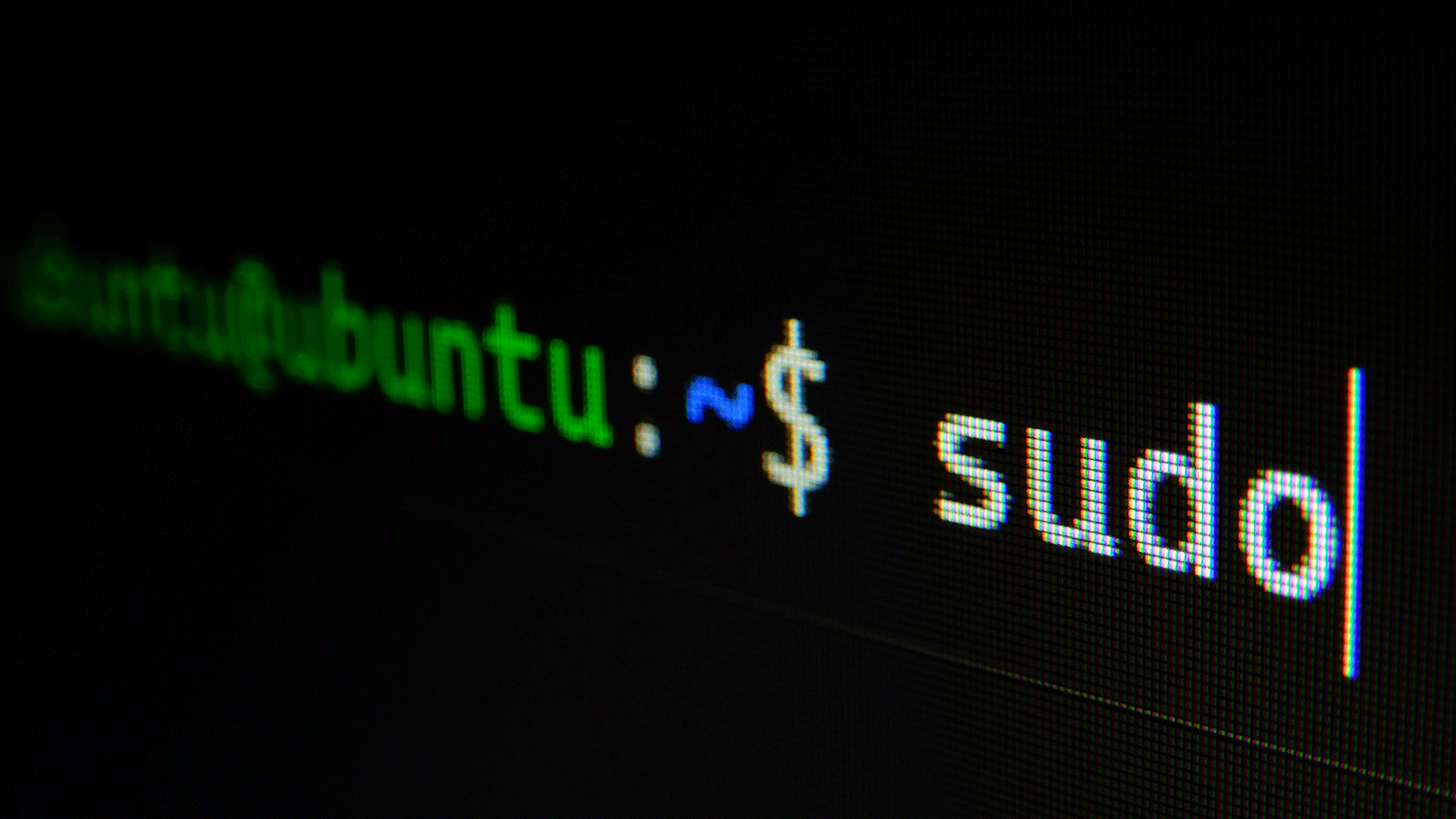Will 2024 finally be the year of the Linux desktop? The open source world seems to ponder this question every year, but we may be closer than ever thanks to Project Sputnik, a collaborative effort between Dell and Ubuntu to offer developers high-end laptops and workstations that come with Ubuntu preinstalled. The Linux-enabled portfolio is one of the first of its kind designed specifically for developers.
In this interview, Open at Intel podcast host Katherine Druckman chats with Project Sputnik founder Barton George about the project’s journey and how the developer community shaped every step along the way.
Listen to the full episode here. This conversation has been edited and condensed for brevity and clarity.
Katherine Druckman: Tell us about yourself and your role in the open source community.
Barton George: I’m part of Dell’s developer relations team and I’m a community manager. I’ve been in open source a long time. I started at Sun Microsystems in their open source office, managing relationships with Red Hat, Canonical, Debian, and SUSE, as well as Linux Foundation and Free Software Foundation.
Community-First from the Start
Katherine Druckman: Can you tell us about Project Sputnik?
Barton George: Next month will be our eleventh year. The whole idea was to get Dell into the minds of developers because developers didn’t think good or bad of us, and we see developers as being very influential. We brought in Stephen O’Grady from RedMonk, and he came up with the idea of putting Ubuntu on a Linux laptop. I thought it was a great idea but impractical; Dell’s volumes that they do are so high that this would never come to life. Luckily, a couple of months later Dell launched an innovation fund, and I thought it’d be a great way get some momentum behind this.
My presentation to the innovation fund was very unbusinesslike—no cost projections, no revenue projections, no timeline. I just talked about the opportunity to be the only major OEM providing a Linux laptop to an influential group.
On top of that, I wanted to put the Linux distro of Ubuntu on our high-end laptop, which puzzled them because, while we’d been selling Linux on laptops and workstations for years and done really well, we did it as more of a value option—you take a lower-end system and put a free OS on it and a lot of people want to buy it. The idea here was to take our high-end system and get it working perfectly. They questioned why people would want to buy our high-end system, the Dell XPS 13, with a free OS, but they gave us a little pot of money and six months to see if it would become a real product.
We announced it on my blog, not because I got a lot of traffic—I averaged about 60 views per day—but because we wanted to set it aside from Dell a bit. Within a few days, our average traffic climbed to 15K views per day. It got picked up in the Wall Street Journal, Forbes, and Ars Technica. After the positive news, we did a beta program. We expected to get 300 people, but we got 6K people from around the world. That’s when senior management said we could make it a real product. So about nine months after the initial presentation, we launched the product. It’s gone from one config to a whole portfolio of workstations and systems.
The three keys that drove this were community input, transparency, and giving back. We wanted to make sure we did this all out in the open. When we asked for input, we did it through social media where people could say good and bad things about it, which is a different way than we typically got customer feedback. For example, when we came out with the XPS 13, which is a very thin, svelte offering, there were people who ate it up, but there were also people who said they needed more CPU power and memory. That’s when we added the Precision line to the system. We got enough input to show that there were a lot of people who wanted it. From the beginning, we said we weren’t doing this to make money. We were doing this to change people’s minds and get people thinking about Dell as being developer friendly.
Systems That Just Work
Katherine Druckman: What have you observed over the last 10 years about the market—who is the ultimate customer for Linux laptops?
Barton George: They’re developers. The Linux laptop market has stayed around 2 percent, and we’ve just gotten more and more of that share. There were a lot of people who went over to Macs because they were tired of futzing with Linux drivers that weren’t there, and Macs had a Unix underpinning. Once someone offered a Linux-enabled system that would just work because of the driver work we did, developers came back over to our side. We also had this idea of doing a cloud launcher, where you have a micro cloud on your laptop and push it up to the cloud. We tried that and we couldn’t do it, but then Docker came along, and that’s basically what they did.
I also want to talk about contributing back. The way it works is, device manufacturers will write the drivers and push them up to the kernel, then Dell and Canonical [the company behind Ubuntu] take that, pull it back down, and add patches to it so that it’s tuned for our system. For example, if a touchpad or wireless card manufacturer writes the driver and pushes it up to the kernel, other laptops that use these same components can use the driver, but patches help fine-tune everything so it just works. The idea is whatever we do, we push it back to the kernel. This also allows people to run other distros on our laptop. We only offer Ubuntu preloaded, but you can install whatever you want to run.

Turning Ranters into Ravers
Katherine Druckman: How much do you have to sell this project internally?
Barton George: In the beginning it was relentless. You had to sleep with one eye open because there were people who would hear about the project and say, “What the heck are we doing spending resources on this? If you want a niche audience, why don’t we build a system for orthodontists, because that’s just as relevant.” A lot of people just didn’t see the value back then. So you had to stay vigilant to make sure nobody killed your project. At the same time, by championing it, you get a lot of people who help out. You depend on the kindness of strangers. A lot of folks were really excited about this and gave what resources or time they could.
Katherine Druckman: I’d imagine a community like this would be more loyal to a company that gives them what they’re asking for. Are you finding this to be true?
Barton George: The community is loyal as long as you treat them with respect, help them, and speak transparently to them. Like a lot of people, we often got flamed for something. For example, when the Precision came out, it was available around the world, and someone in Denmark couldn’t find it because of a glitch. He said it was typical of Dell and that all we’re after is making a profit. I wrote back to him to apologize and let him know I’d sent an email to the team to get it up there. I told him I appreciated him letting us know. He wrote back and said thank you so much, I really appreciate it. Oftentimes it’s about speaking directly and with empathy. And it benefits us to get this kind of information because there are glitches that happen all the time. By talking to somebody, you can turn ranters into ravers, and they become big allies.
I remember Wes McKinney, who wrote pandas in the machine learning space, had a developer-edition Precision running Ubuntu. When I asked him how he liked it, he said he hated it and was never going to buy another one again. So I talked to him, he told me about his problems, and I put him in touch with the engineering team. We got it fixed, and then he wrote this amazing blog about how much he liked it and how helpful we were. The community can become big supporters, but you have to listen to them and take them seriously.
What’s Next
Katherine Druckman: What excites you about the project’s future?
Barton George: I think just getting the word out there because there are so many people who don’t even know it exists. We really haven’t had a marketing budget for this. I would love to have an influencer program again, give out units, or find other ways that we can get the word out. I think there’s a lot of untapped potential. We’d like to see the whole world using the developer edition Dell XPS 13 and the Precision.
To hear more of this conversation and others, subscribe to the Open at Intel podcast:
- openatintel.podbean.com
- Google Podcasts
- Apple Podcasts
- Spotify
- Amazon Music
- Your favorite podcast player (RSS)
About the Author
Katherine Druckman, Open Source Evangelist, Intel
Katherine Druckman, an Intel open source evangelist, hosts the podcasts Open at Intel, Reality 2.0, and FLOSS Weekly. A security and privacy advocate, software engineer, and former digital director of Linux Journal, she’s a longtime champion of open source and open standards.
Barton George, Developer Community Manager, Dell
Barton George has been involved with Linux and open source for over 15 years. For the last 10+ years he has been at Dell Technologies where, beyond Linux and open source, he has focused on cloud-native computing and DevOps. Currently Barton is a member of Dell’s developer relations team. In addition to his day job, Barton is the founder and lead of Project Sputnik, a line of Ubuntu-powered developer laptops and workstations. Born and raised in Honolulu, Hawaii, Barton is a single father of three teenagers. He and his children happily reside just outside Austin, Texas.
